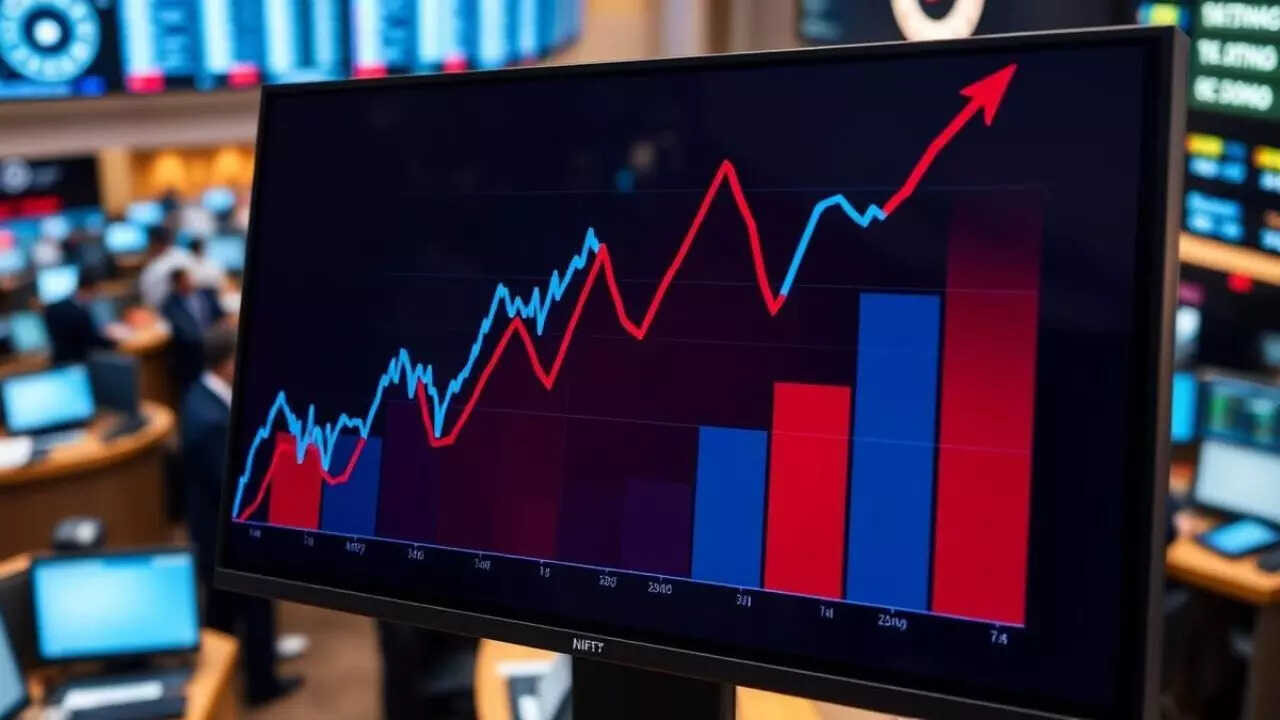Navigating the Choppy Waters: How Geopolitics Impacts Your Investments
The stock market, that often-unpredictable beast, took a tumble recently, leaving many investors wondering what’s next. While the market always has its ups and downs, global events can act like a rogue wave, sending ripples (or outright tsunamis!) through our portfolios. This week, the rising tensions between Israel and Iran certainly played a role in the market’s movements, specifically impacting Dalal Street and the Sensex.
The Sensex, a key indicator of the Indian stock market’s health, experienced a significant see-saw effect, ultimately closing 511 points lower. But what exactly caused this volatility, and more importantly, what does it mean for your investments? Let’s dive into the contributing factors and explore how to navigate these uncertain times.
The Geopolitical Jitters: Israel-Iran and Market Reaction
The escalating tensions between Israel and Iran created a palpable sense of unease in global markets. Investors, by nature, are risk-averse, and geopolitical uncertainty fuels anxiety. Think of it like this: businesses thrive on predictability. When political stability is threatened, supply chains become vulnerable, trade routes are disrupted, and economic confidence wavers. This translates into a flight to safety, often witnessed as investors pulling out of riskier assets like stocks and parking their money in safer havens, such as gold or government bonds.
The Indian market, while having its own unique dynamics, is not immune to these global tremors. The prospect of a wider conflict in the Middle East, a region crucial for oil supplies, sent shivers down the spines of investors. Oil prices, as expected, saw an uptick, adding to inflationary concerns already weighing on the global economy. This knock-on effect directly impacts Indian companies, particularly those reliant on energy imports.

Decoding the Dalal Street Dip: More Than Just Headlines
While the Israel-Iran situation was a significant catalyst, it’s important to acknowledge that the market’s reaction wasn’t solely attributable to this single event. A combination of factors contributed to the downturn. Profit-booking, where investors sell their holdings to cash in on recent gains, often follows a period of strong market performance. Furthermore, concerns about rising inflation, both in India and globally, continue to linger.
Foreign Institutional Investors (FIIs), key players in the Indian stock market, also played a role. Their investment decisions are often influenced by global economic trends and geopolitical risks. The heightened uncertainty prompted some FIIs to adopt a more cautious stance, leading to increased selling pressure.
Navigating the Volatility: Strategies for Investors
So, what can you do as an investor in these uncertain times? The key is to remain calm and avoid knee-jerk reactions. Here are a few guiding principles:
* Stay Diversified: A well-diversified portfolio, spread across different asset classes and sectors, is your best defense against market volatility. Don’t put all your eggs in one basket.
* Review Your Risk Tolerance: Understanding your risk appetite is crucial. Are you comfortable with short-term fluctuations in pursuit of potentially higher returns, or do you prefer a more conservative approach? Adjust your portfolio accordingly.
* Focus on the Long Term: Investing is a marathon, not a sprint. Don’t get swayed by short-term market noise. Focus on the long-term fundamentals of your investments.
* Consider SIPs (Systematic Investment Plans): SIPs allow you to invest a fixed amount regularly, regardless of market conditions. This helps you average out your investment cost over time and potentially benefit from market dips. Consider reading more about understanding your investment portfolio.
* Seek Professional Advice: If you’re unsure about how to navigate these market conditions, consult a qualified financial advisor. They can provide personalized guidance based on your individual circumstances.
Looking Ahead: What’s on the Horizon for the Market?
Predicting the future is a fool’s errand, especially in the volatile world of finance. However, we can certainly analyze the prevailing trends and potential scenarios. The trajectory of the Israel-Iran situation will undoubtedly remain a key factor influencing market sentiment. Any de-escalation of tensions could provide some much-needed relief and potentially trigger a market recovery.
The global economic outlook, particularly inflation and interest rate movements, will also play a crucial role. If inflation starts to cool down and central banks signal a dovish stance on interest rates, it could provide a boost to the markets.
In conclusion, the recent market dip serves as a reminder of the interconnectedness of global events and their impact on our investments. While geopolitical tensions and economic uncertainties can create volatility, a disciplined and well-informed approach can help you navigate these choppy waters and achieve your long-term financial goals. Remember to stay diversified, focus on the long term, and seek professional advice when needed.







